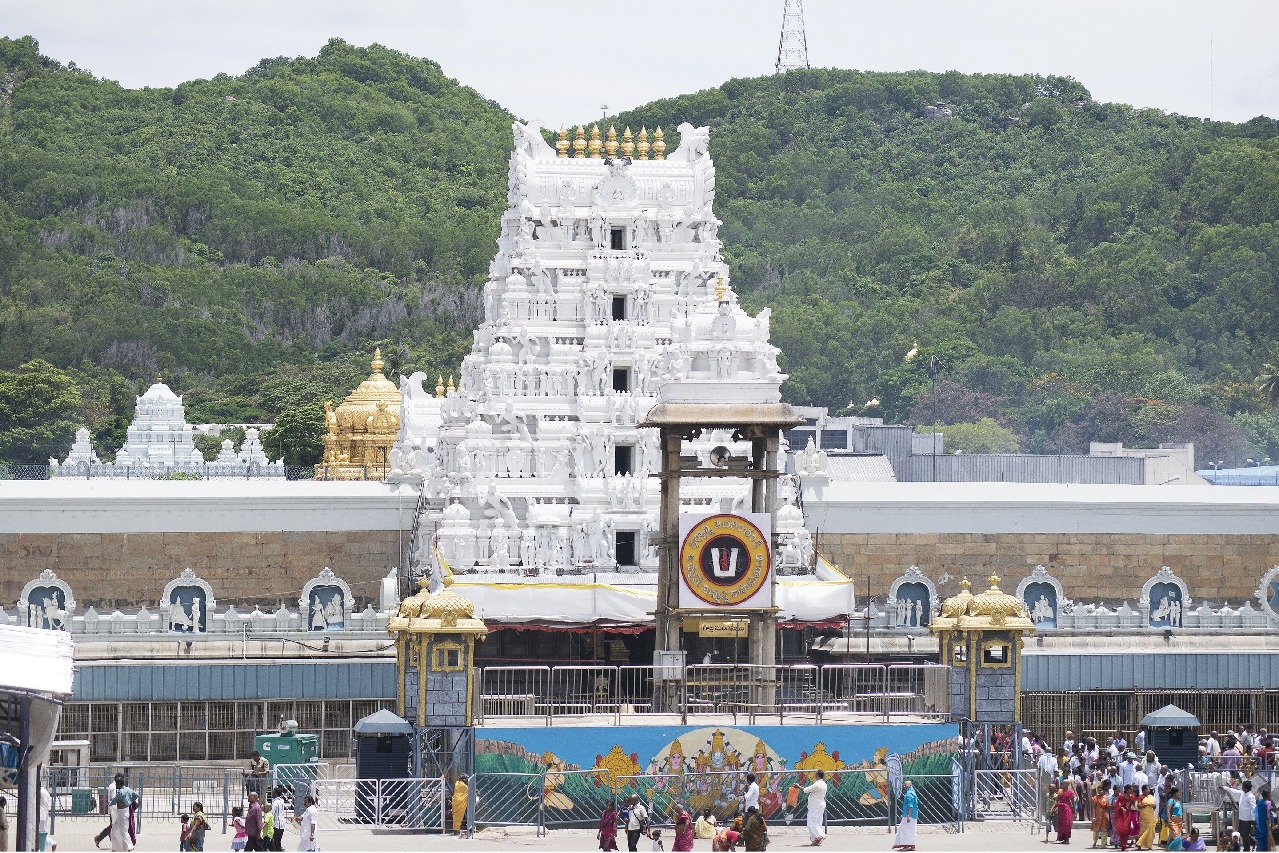Momentum builds for freeing temples from govt control after Tirupati controversy

New Delhi, Sep 26 : Amid the escalating Tirupati "laddu controversy," the call to free temples from government control is growing stronger.
Following the Vishwa Hindu Parishad (VHP), numerous religious leaders are joining the push for temple liberation. Is this the onset of a movement aimed at removing state regulation of temples across the country?
The discourse surrounding this issue has intensified due to allegations of animal fat adulteration in the ghee used for prasadam (holy offerings) at the Sri Venkateswara temple in Tirupati, Andhra Pradesh.
The momentum for freeing temples from government control has been building, with various organisations, civil society, and political figures rallying behind this cause. Debates are emerging in public forums, especially in light of the laddu scandal, and the call for reform is becoming increasingly vocal.
Proponents argue that removing state oversight could reduce corruption within temple management boards. Many assert that the "Free Hindu Temples" movement is essential for reforming the temple management system. Observers note that while the state has liberalised its control over assets, businesses, and various economic sectors, temples remain under stringent state regulation.
Analysts point out that Hindu temples flourished for centuries under local governance, long before India’s democratic and secular state was established in 1947. The push to liberate temples from government oversight has even reached the Supreme Court, where concerns have been raised about state involvement in temple management.
Those supporting temple freedom argue that government control contradicts the principle of secularism and intrudes into religious affairs. They also accuse state officials of misappropriating temple resources, noting that the Hindu Religious and Charitable Endowments (HR&CE) Department collects substantial funds, despite court disapproval of such practices.
In Tamil Nadu, temples are reportedly unable to perform rituals due to depleted incomes, with no external audits being conducted since 1986, resulting in 1.5 million unresolved audit objections.
The VHP has recently asserted that government control over temples reflects a mindset rooted in the legacy of "Muslim invaders" and colonial rule.
According to a VHP spokesperson, "Governments are using temples to plunder their wealth and to provide positions for politicians who cannot find a place in the government."
Following the Vishwa Hindu Parishad (VHP), numerous religious leaders are joining the push for temple liberation. Is this the onset of a movement aimed at removing state regulation of temples across the country?
The discourse surrounding this issue has intensified due to allegations of animal fat adulteration in the ghee used for prasadam (holy offerings) at the Sri Venkateswara temple in Tirupati, Andhra Pradesh.
The momentum for freeing temples from government control has been building, with various organisations, civil society, and political figures rallying behind this cause. Debates are emerging in public forums, especially in light of the laddu scandal, and the call for reform is becoming increasingly vocal.
Proponents argue that removing state oversight could reduce corruption within temple management boards. Many assert that the "Free Hindu Temples" movement is essential for reforming the temple management system. Observers note that while the state has liberalised its control over assets, businesses, and various economic sectors, temples remain under stringent state regulation.
Analysts point out that Hindu temples flourished for centuries under local governance, long before India’s democratic and secular state was established in 1947. The push to liberate temples from government oversight has even reached the Supreme Court, where concerns have been raised about state involvement in temple management.
Those supporting temple freedom argue that government control contradicts the principle of secularism and intrudes into religious affairs. They also accuse state officials of misappropriating temple resources, noting that the Hindu Religious and Charitable Endowments (HR&CE) Department collects substantial funds, despite court disapproval of such practices.
In Tamil Nadu, temples are reportedly unable to perform rituals due to depleted incomes, with no external audits being conducted since 1986, resulting in 1.5 million unresolved audit objections.
The VHP has recently asserted that government control over temples reflects a mindset rooted in the legacy of "Muslim invaders" and colonial rule.
According to a VHP spokesperson, "Governments are using temples to plunder their wealth and to provide positions for politicians who cannot find a place in the government."